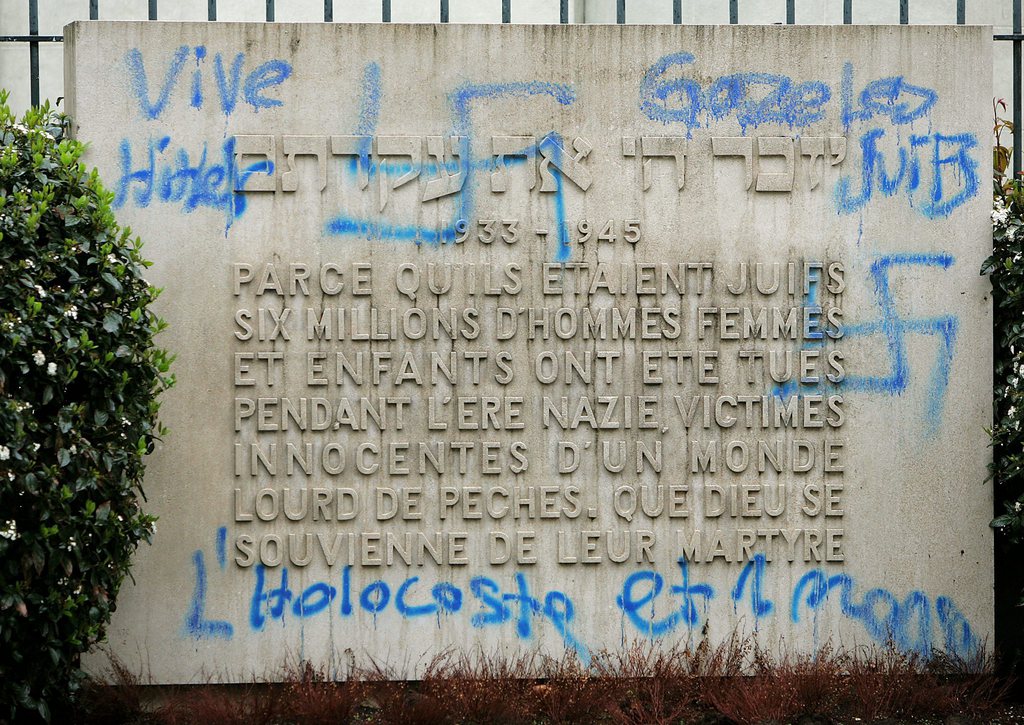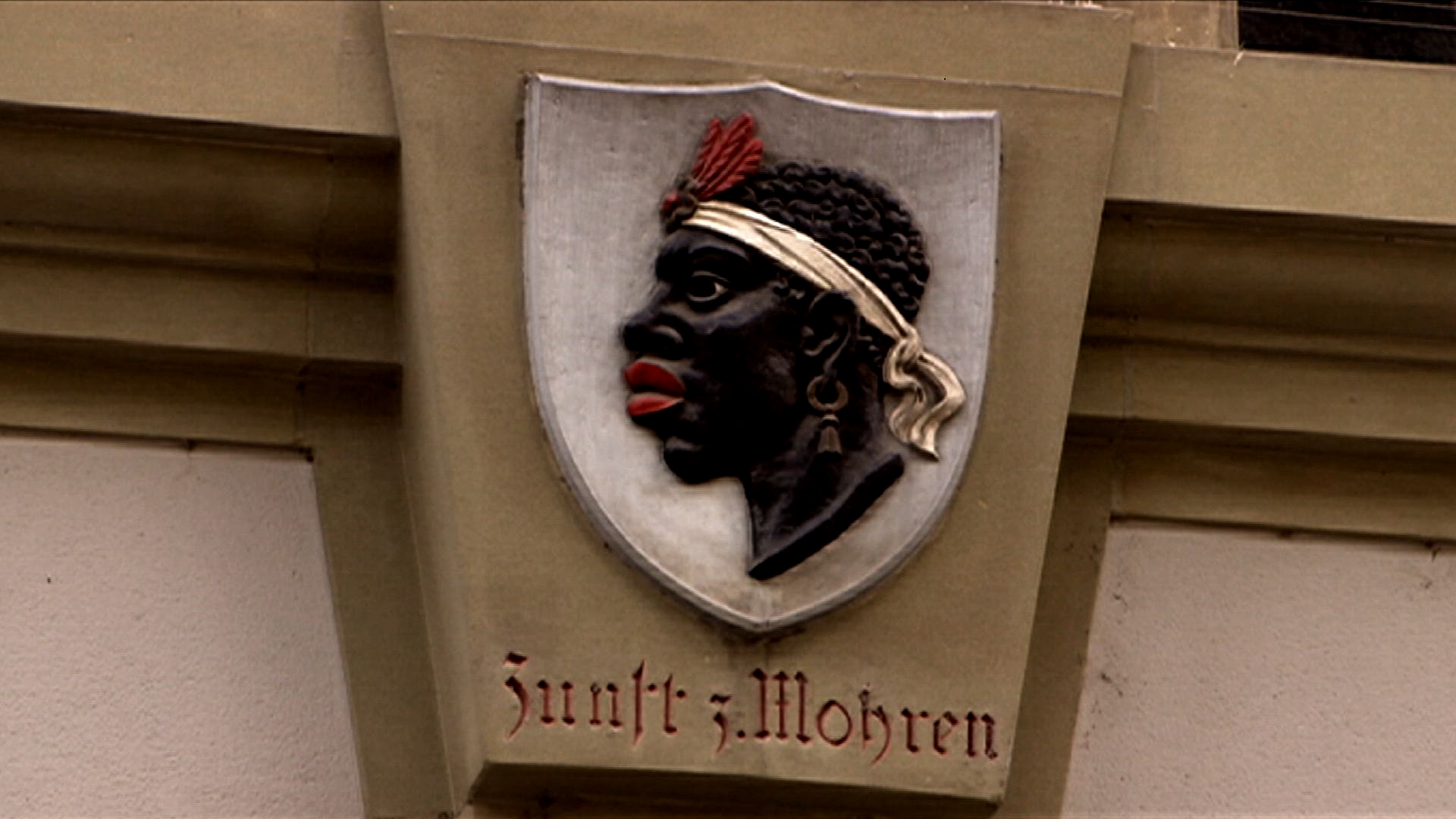Anti-racism law facing resistance from the right

Exposing a dark side of Swiss society to justice or stifling free speech unnecessarily? Twenty years after Swiss voters approved the introduction of anti-racism legislation, the law is facing fresh resistance.
A yodeling festival, a cafe, an architect’s website – racist abuse and discrimination can appear in the most innocuous of places. When the incident injures the human dignity of an individual or group, or crosses the line into incitement to hatred or propaganda, it is prosecutable.
There have been some 380 such prosecutions since the law came into force in January 1995, the vast majority of convicted offenders receiving fines or suspended fines by way of punishment.
Most of those convicted have been private individuals but politicians, media outlets, extreme right activists and officials have also been obliged to face legal consequences for their actions.
“Nigger, dirty nigger, son of a whore, wanker.” This was the abuse repeatedly shouted at a man attending a yodeling festival in Interlaken in 2012 in front of many bystanders in one of the hospitality tents.
The offender was convicted of violating the anti-racism law and fined CHF750 plus an additional fine of CHF3,000 suspended for two years.
Source: Court summary published by the Federal Commission against Racism.
Test of time
How has the law stood the test of time? According to the latest motion by the rightwing Swiss People’s Party to scrap the law in parliament, it has led to “legal uncertainty, abuse and an increasing number of unprosecutable cases”.
The motion to strike the anti-racism Article 261bis from the criminal code was submitted in March 2014.
However, the Swiss Federal Commission against Racism complains that judges are applying the law too restrictively. In its most recent report on Switzerland, the United Nations Committee on the Elimination of Racial Discrimination also took this position.
Oskar Freysinger, a People’s Party parliamentarian who submitted a previous motion calling for changes to Article 261bis, told swissinfo.ch that the law was counter-productive and had been used to create a dictatorship of political correctness.
“This law is being used politically. People don’t feel free to express themselves any more, even the threat of a complaint is enough to make people censor their opinions,” Freysinger said.
An architect made anti-Semitic material available on his website, including books and texts that denied the Holocaust, spread Jewish stereotypes and made libelous and discriminatory claims against Jews.
The man, who claimed he hadn’t read the texts and was unaware of their racist content, received a CHF9,000 fine suspended for two years.
Source: Court summary published by the Federal Commission against Racism.
Denial
One of the longest-running cases prosecuted under law involves Turkish nationalist Dogu Perinçek, who was charged with denying the Armenian genocide of 1915, still contested by Turkey, in a speech given in Lausanne in 2005.
The law specifically prohibits denial, gross minimisation and justification of genocide or of other crimes against humanity. Perinçek was found guilty and fined but successfully appealed to the European Court of Human Rights (ECtHR), which ruled his right to free speech had been violated.
The case has dragged on. The Swiss Justice ministry said in March 2014 it was appealing the ECtHR decision and would refer the case to the Grand Chamber of the Court of Human Rights. Earlier this month, the court accepted the Swiss request to reexamine the case.
Freysinger is of the opinion that politicians and historians should not be prosecuted, no matter how foolish or wrong their stance may be.
“Prosecuting people in these circumstances just makes a martyr of them and gives them validation,” Freysinger said.
Veteran Swiss neo-fascist Gaston-Armand Amaudruz notably served two prison sentences in 2000 and 2003 for his repeated public denial of the Holocaust.
A man wrote an article entitled: “This is why we shouldn’t give Swiss citizenship to Muslims”, which was published in an unspecified political party newspaper. The Thurgau court found that the article made defamatory claims about Muslims as a group and rejected the defendant’s argument that Muslims could not be subject to anti-racism law as Muslims were not a race.
The man was fined CHF170 plus a suspended fine of CHF5,400.
Source: Court summary published by the Federal Commission against Racism.
‘Foreign pig’
While the People’s Party worries that the law has gone too far, leading to a “culture of denunciation” (Denunziantentum) and a “state ruled by judges” (Richterstaat), Martine Brunschwig-Graf, president of the Federal Commission Against Racism, finds there is a tendency to apply the law quite restrictively with regard to freedom of expression.
She gave two recent examples: The 2007 case where a policeman who called an Algerian, detained on suspicion of theft at the Basel Watch Fair in 2007, a ‘foreign pig’ and ‘filthy asylum seeker’ was acquitted on appeal.
In the appeal ruling published in February 2014 the court said it found that the insults did not violate the anti-racist law because they were not directed at a specific ethnic group or religion. It also said that using the word “pig” (Sau-) or “filthy” (Dreck-) followed by mention of a person’s nationality was not a violation of the law either.
The second example involved a man who made the Hitler salute at an extreme-right gathering in 2010. On appeal in May 2014, Switzerland’s highest court found he had not violated anti-racism law as he was “merely expressing his own convictions” and not spreading ideology.
“This is not just a judicial problem, it is a societal problem, giving the impression that certain offensive behaviour is permitted,” Brunschwig-Graf told swissinfo.ch.
In a radio interview, a St Gallen bar owner said that he didn’t allow any “Albanians, Yugoslavs or blacks” into his premises and instructed his bouncer to act on those instructions.
The bar owner was fined CHF500 with a suspended fine of CHF3,300 to be imposed if he reoffended.
Source: Court summary published by the Federal Commission against Racism.
‘Questionable cases’
However, there is some discomfort even amongst anti-racism ranks about the perceived heavy-handed use of legal action whenever someone makes a comment in poor taste.
The former president of the Federal Commission Against Racism (1995 – 2011), Georg Kreis, wrote an opinion piece in the tageswoche.ch news website in January reacting to just such a case, lamenting the fact that a comment made by a “satirist” in a television interview drawing on the stereotype of the “money-grabbing Jew” had led to an official complaint to prosecutors.
Alexander Tschäppätt, Bern’s Social Democrat mayor, also found himself in hot water after jokes he made in a stand-up comedy routine last December about Italians being lazy didn’t go down well. A Swiss-Italian lawyer in Basel made a complaint against him which is now being examined by Bern’s prosecutor’s office.
87 countries, including Switzerland, are signatories to the International Convention on the Elimination of all forms of Racial Discrimination, albeit with various reservations. 177 countries in all are party to the convention (see link).
Article 4 of the convention states: “Parties condemn all propaganda and all organizations which are based on ideas or theories of superiority of one race or group of persons of one colour or ethnic origin, or which attempt to justify or promote racial hatred and discrimination in any form, and undertake to adopt immediate and positive measures designed to eradicate all incitement to, or acts of, such discrimination.”
Austria, Belgium, France, Ireland, Italy, Japan and Switzerland all interpret Article 4 as not infringing on freedoms of speech, opinion, association, and assembly.
In its reservations, the United States does not accept any obligation under the convention to restrict rights to individual freedom of speech, expression and association contained in the Constitution and laws of the US.
“When the anti-racism legal norm was introduced in Switzerland in 1995, it was clear to the experts that complaints and accusations would be carefully handled and only clear violations of the law would be brought before the court, in order not to damage the norm with acquittals in questionable cases,” Kreis wrote.
The new parliamentary motion to scrap the law also mentions the plight of satirists: “Even satirists have to think twice whether they may make a point without being subject to a legal complaint.”
The cabinet addressed this point in its response to the motion, published in May, agreeing that there had been more media reports recently about official complaints related to comments made in satirical performances.
“However, as far as the cabinet is aware, to date these have not led to any conviction for racial discrimination,” the response read.
Kristallnacht
Rather it is the People’s Party and its members who have been in the spotlight for falling foul of the law, the most recent high-profile case involving a social media blunder. A Zurich court in May 2014 ruled that a former party member had violated the anti-racism law when he posted the following comment on Twitter in June 2012:
“Maybe we need a new Kristallnacht … this time against the mosques.”
The court ruled that his tweet was offensive to Muslims as well as Jews. “Kristallnacht” (Night of the Broken Glass) refers to a pogrom against Jews in Germany in November 1938, during which nearly 100 people were killed and businesses and synagogues attacked while authorities looked on.
Could it be that the People’s Party wants to get rid of the law to protect its own members found to be expressing objectionable opinions?
Freysinger dismisses this. “I want to defend the right of any person, regardless of whether they are on the left or right, to express controversial views. A democracy should be strong enough to be able to support that.”
In its most recent report on Switzerland (March 2014), the UN Committee on the Elimination of Racial Discrimination expressed concern at the “restrictive interpretation of article 261bis … by the judicial authorities.”
Commenting on racism and xenophobia in the media, the committee said it was deeply concerned at racist stereotypes promoted by members of right-wing populist parties and sections of the media.
“It is also concerned at the display of political posters with racist and/or xenophobic content and of racist symbols, as well as at racist behaviour and at the lack of prosecution in such cases.” – extract from the report.

In compliance with the JTI standards
More: SWI swissinfo.ch certified by the Journalism Trust Initiative


You can find an overview of ongoing debates with our journalists here. Please join us!
If you want to start a conversation about a topic raised in this article or want to report factual errors, email us at english@swissinfo.ch.